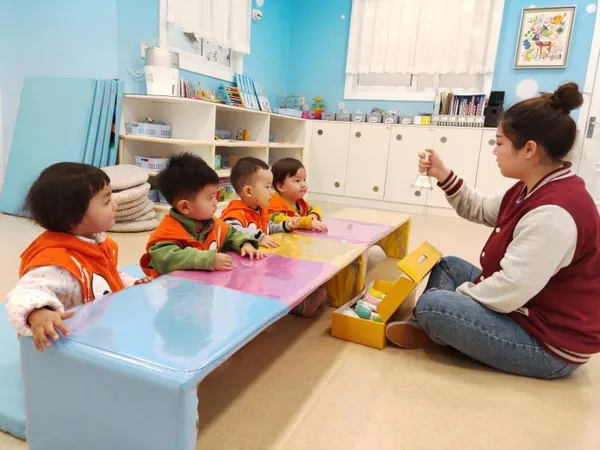St. George’s, University of London, pioneers groundbreaking efforts to enhance student mental health by employing Virtual Reality (VR) sessions to alleviate stress and anxiety. Initial findings are being unveiled today at the A Metaverse for the Good conference in Barcelona.
Over the past decade, there has been a significant surge in UK students disclosing mental health conditions to their respective universities, with a five-fold increase observed from the academic year 2010/11 to 2020/21. According to a 2022 survey conducted by the mental health charity Student Minds, 57% of respondents self-reported experiencing a mental health issue. This innovative VR experience emerges as a potentially transformative tool in addressing this escalating concern.
Developed by Phase Space Ltd in collaboration with St. George’s, University of London, the VR content integrates established hypnosis-based stress management techniques, such as breathing exercises and visualization, tailored for the VR environment. Leveraging VR’s immersive capabilities and captivating graphics, the content directs the user’s focus, facilitating rapid relaxation within minutes.
A trial involving one hundred St. George’s healthcare students, conducted between October and November 2023, evaluated the efficacy of the VR intervention targeted at managing exam-related stress. Participants were randomly assigned to either experience the VR content using Phase Space headsets or watch a 2D video on their smartphones. Both groups engaged in daily seven-minute VR sessions over a five-day period.
Pre- and post-session assessments revealed that students in the VR headset group exhibited greater improvements across all metrics compared to the control group using smartphones. Following the sessions, participants in the headset group reported increased feelings of calmness, with scores escalating from 5.6 to 7.5, while stress levels decreased from 5.0 to 3.2, and anxiety diminished from 4.4 to 3.0.
Additionally, standardized scales commonly utilized in psychiatry measured students’ levels of happiness, calmness, stress, sadness, anxiety, wellbeing, and depression at the beginning of the trial and during a follow-up session two weeks later. The results indicated a notable increase in wellbeing and a decrease in perceived stress among the VR headset group, with no significant changes observed in the control group during the same period.
In response to open-ended inquiries, 89% of students utilizing the VR headsets reported experiencing therapeutic benefits on their emotional wellbeing. Qualitative feedback highlighted feelings of increased calmness, confidence, and rejuvenation among participants.
Moreover, students in the VR headset group noted a heightened sense of immersion, with no reported incidents of cybersickness. Encouraged by the positive outcomes, St. George’s Student Union plans to offer regular VR sessions to students as a stress management tool, particularly during exam periods starting in late April.
Dr. Aileen O’Brien, Reader in Psychiatry and Consultant Psychiatrist at St. George’s, underscored the project’s significance, stating, “The mental health of students has never been more critical. We are encouraged by the overwhelmingly positive response from students and are eager to expand this pioneering initiative further.”
Zillah Watson, Co-founder and Chief Executive of Phase Space, emphasized the potential of VR in addressing the student mental health crisis, expressing enthusiasm for the reported benefits. The collaboration between Phase Space and St. George’s represents a significant advancement in evidence-based solutions aimed at improving the mental health and wellbeing of young people.
Funded by UKRI Innovate UK as part of the Mindset program, the trial and content creation aim to scale up VR technology deployment across UK universities, signaling a promising step toward comprehensive mental health support within higher education institutions.



























